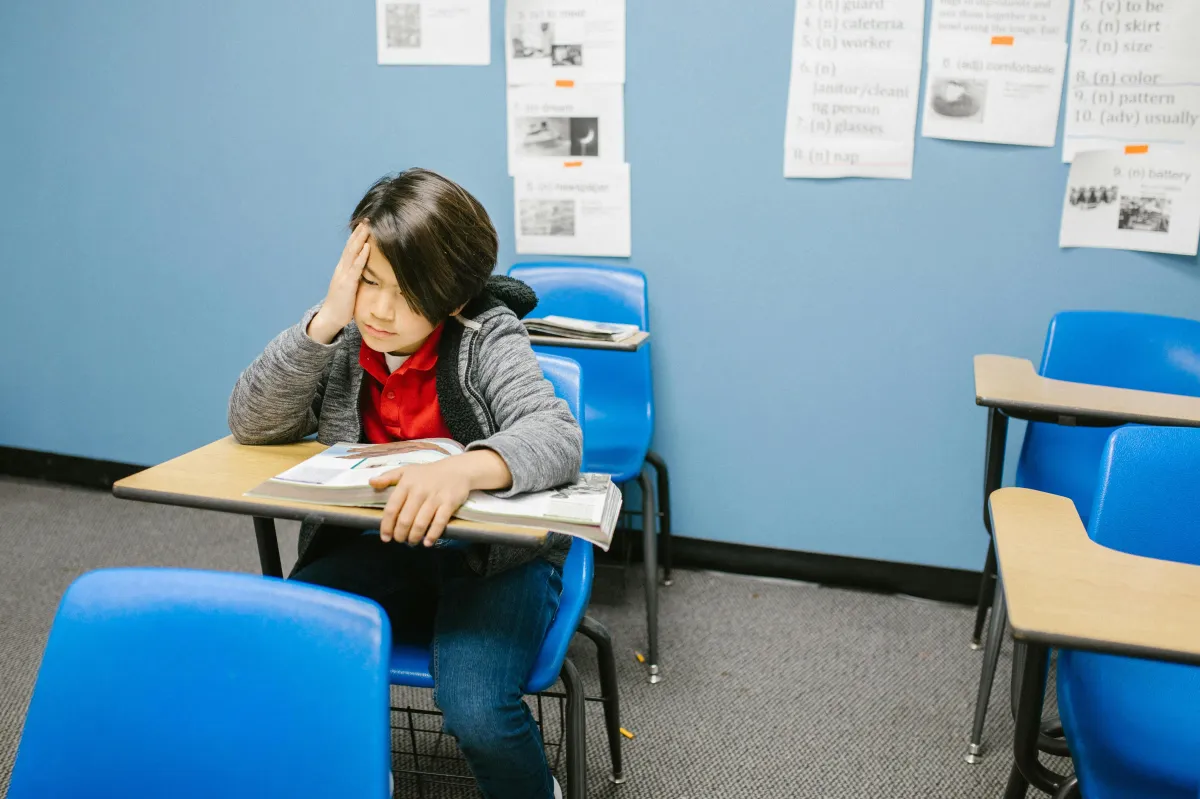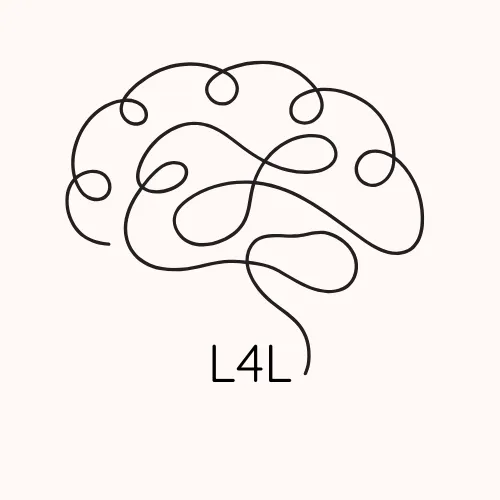
Why Students Struggle: The Presumed Prior Knowledge Effect and How to Avoid It + [FREE GUIDE]
When my little munchkin 2-year-old just started dressing herself – she LOVED "la-las" (her word for dresses) which she wore with stockings. One morning she put on her gumboots quickly and then tried to pull her stockings over the top. I had to show her that she needed to put on her stockings before she put on her gumboots.
Miss 2’s behaviour reminded me of what I call the Presumed Prior Knowledge Effect in education. It refers to certain teaching practices that I, and many of my colleagues, were commonly using without realising it was negatively impacting student learning.
Read on to learn about this all too common teaching practice that could be holding your students back.
Why Students Struggle: The Presumed Prior Knowledge Effect and How to Avoid It + [FREE GUIDE]
🎯 Want the resource without the scroll?
What is the Presumed Prior Knowledge Effect?
What does it look like in practice?
Want to build more background knowledge?
🎯 Want the resource without the scroll?
Grab our FREE Ultimate Guide to Building Critical Thinkers – a simple, science-backed planning tool to help you teach thinking that sticks.
Inside, you’ll get:
✅ A 3-question audit to spot what’s not working
✅ A quickstart roadmap for building schema-rich units
✅ A science of learning cheat sheet that summarises the key things you need to know
👉 Click here to download it now
What is the Presumed Prior Knowledge Effect?
At a basic level, it means that we ask students to do tasks before they are cognitively prepared for them. Usually, it occurs because we presume the students already have the backgrounledge they need for the task – when often, they simply don’t.
These kinds of tasks are common in all classrooms, but especially in English and Humanities. Whenever we ask a student to analyse a novel, do a creative task, answer questions about what they've read or viewed or even to learn independently from a text or video before we spend significant time building their knowledge base, we’re assuming they’ve somehow gained the required schema outside of class. This assumption leads to what I call the Presumed Prior Knowledge Effect.
We need to understand that tasks requiring students to create, evaluate and analyse are at the top end of Bloom's taxonomy. Students cannot meaningfully complete a task at that level before they’ve spent significant time at the base of Bloom’s — effectively memorising the knowledge they'll need and committing it to their long-term memory. It’s also important to remember that even tasks we consider more basic, like developing literal comprehension of a video or text, can be impossible — or at least seriously impaired — when students lack the necessary background knowledge.
The key takeaway for teachers is simple: students can’t think critically with information they don’t have, only partly grasp, or even worse, fundamentally misunderstand.

Why does this happen?
Often, we presume students already possess the necessary background knowledge because it feels self-evident to us. As teachers, we can easily comprehend the texts or videos we present, which makes it challenging to recognise that the meaning may not be as clear to our students.
For example, an English teacher might assume that concepts like courage or power are universally understood and therefore require no explicit teaching. We often think if we pop the word up on the board and unpack it as a class that is sufficient to ensure students understand these complex concepts.
In Humanities, a teacher may believe that if students can understand each individual word in a passage or video, they will naturally be able to comprehend its meaning. But understanding vocabulary is not the same as grasping the underlying concepts or historical context — and without that, true comprehension breaks down.
Sometimes the Presumed Prior Knowledge Effect stems from systemic pressure — we’re told to "get through the curriculum" or "make learning student-led." Many teachers are also encouraged to use discovery or inquiry-based methods that skip over explicit instruction and assume students will absorb key ideas through exploration. While these approaches may seem engaging on the surface, they often overload students’ working memory and increase cognitive load.
In reality, student engagement doesn’t come from novelty or open-ended tasks. It comes from success. And success depends on cognitive readiness — having enough relevant knowledge in long-term memory to make sense of new information.
We may also presume students have already picked up the necessary background knowledge in previous years — or at home. But for many students, especially those from disadvantaged backgrounds, that assumption just isn’t fair. In fact, it’s one of the key reasons learning gaps persist and widen over time.

Asking students to complete a task without foundational knowledge is like giving them a puzzle with pieces missing.
What does it look like in practice?
Here are a few examples of Presumed Prior Knowledge type tasks:
In a novel study, asking students to:
Find a quote about survival in a passage of text without first spending significant time studying the concept of survival — what events or experiences could lead to a need to survive, how it appears in different forms, and how to recognise it in narrative.
Re-write a scene from another character's perspective before thoroughly studying the novel and building deep understanding of the characters, their motivations, and the theme we want them to explore in the re-write.
In a history lesson, asking students to:
Read and answer comprehension questions about the Industrial Revolution from a textbook, before explicitly teaching the fundamental ideas and giving them time to practise retrieving and applying that knowledge.
These tasks demand high levels of analysis, creativity or synthesis — without the foundational knowledge students need to access them. The result? Confusion, frustration, and failure.
How does it affect students?
The Presumed Prior Knowledge Effect doesn’t just affect academic performance. It has a deep emotional and cognitive impact.
When students are asked to complete complex tasks without the required background knowledge, it increases cognitive load dramatically. Their working memory becomes overloaded trying to hold and manipulate unfamiliar concepts at once. The result is often blank stares, unfinished tasks, or irrelevant responses — not because students lack ability, but because they’ve been set up to fail.
Over time, this leads to:
Confusion: Students can’t make sense of tasks that seem beyond them.
Loss of confidence: They begin to believe they’re “not smart enough.”
Disengagement: Faced with repeated failure, students shut down.
For our most disadvantaged students — those with the least background knowledge and support at home — the impact is even more severe. Instead of closing the gap, these practices widen it.

Things are easier when we do them the right way around - like first putting on stockings then gumboots!
How does it affect teachers?
This effect doesn’t just hurt students. It also increases teacher workload dramatically.
Teachers often end up spending hours:
Differentiating content so that students can comprehend it,
Preparing sentence starters or essay scaffolds,
Providing 1:1 support during class time just to help students understand the task.
But these supports are band-aids. They don’t address the root issue: students were never given enough explicit instruction to store key concepts in long-term memory. The result is more stress, more differentiation, more behaviour issues — and fewer breakthroughs.
So what’s the solution?
The solution is to build knowledge first. The best learning happens in classrooms where the teacher is not a “facilitator,” but an expert — someone who uses explicit instruction to systematically build knowledge and reinforce it through repeated exposure and retrieval. If you would like students to engage in inquiry, self-led learning or research, this should be undertaken after students have been able to consolidate the knowledge they need to complete these tasks with success.
This is the heart of a knowledge-rich curriculum. It’s not just about facts (which are still important) — it’s about building the schema students need to make sense of more complex ideas.
Once we recognise the Presumed Prior Knowledge Effect, we see that:
It’s not that your novel is too hard or boring.
It’s not that your students can’t focus or aren’t interested.
It’s not that the content is too complex.
It’s just that your students don’t yet have the background knowledge to engage with it meaningfully. And that is something we can fix.
Want to build more background knowledge?
Try these two things to start:
👉 Download my FREE Ultimate Guide to Building Critical Thinkers
This planning guide will help you take your first steps to building schema in your next unit – without burning out.Inside this guide, you’ll get:
✅ A 3 question self-audit to uncover hidden issues in your current approach
✅ A quickstart roadmap for building critical thinking the right way
✅ A repeatable set of simple teaching routines based on cognitive scienceStart small
You don’t need to throw out your entire unit. Just begin by asking: What do my students need to know before they can do this task? Teach that first. Test it. Revisit it. Build their confidence before asking them to do an activity that asks them to apply knowledge, undertake analysis or think creatively.
When we teach knowledge first, we empower students.
When we assume it, we set them up to struggle.
Let’s stop confusing cognitive overload with lack of effort — and start giving our students the tools they need to succeed. You've got this!

